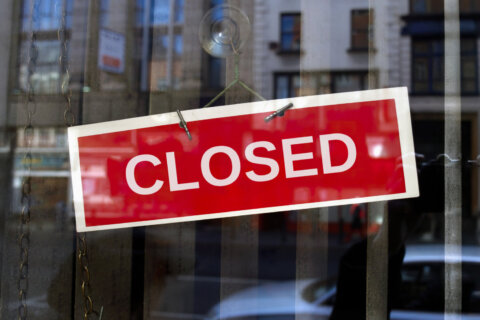Giant Food, which is headquartered in Landover, Maryland, may be forced to close some stores if an uptick in thefts and violence continues, the grocery store chain’s president says.
It’s a trend other big box stores are seeing around the country.
“They steal everything from roasts to shrimp to deodorant to razor blades, you name it,” said Giant Foods President Ira Kress.
Shoplifting has always plagued grocery stores, but Kress said in recent months, Giant has joined a long list of other regional and national retailers that are reporting a boost in thefts, sometimes conducted by large, organized crime rings.
“They hire other thieves and provide them with a list of products to steal,” he said. “Those thieves then go out and fill the list.”
Along with the thefts comes an increase in violence, which Kress said he is the most concerned about.
“What we always must do is ensure we can run our stores safely and profitably,” he said. “If I can’t do both of those things, I’ll have no choice but to close a store. This clearly takes a toll.”
Kress did not say what stores Giant would be forced to close.
Training for clerks and employees includes de-escalation training, but Kress said he doesn’t have all the answers.
“It is scary, and it is really concerning and, unfortunately, I don’t have many solutions for it either,” he said. “But, to the degree that I can limit any of the violence — which is trying to limit the interactions that are causing these individuals to create the violence in our stores — I’ll attempt to do.”
Kress blames a lack of stricter laws and punishments that discourage theft and the ease of selling stolen goods on the black market.
“It is extraordinarily easy to sell stolen items now,” Kress said. “And if it’s easy to make money and there are little-to-no penalties getting caught doing it, then more people are taking advantage of that.”
The retail chain increased security and made several changes, like putting some items under lock and key, eliminating secondary entrances for shoppers and more training for clerks. Kress acknowledged that limiting the number of items customers can bring through self-checkout has upset some customers.
“We used to allow full baskets,” he said. “We now limit that to 20 items.”
Kress said he knows that the new security measures are an inconvenience for some shoppers.
“This is not to cause an inconvenience,” Kress said. “Be patient. If it means you have to ask someone to unlock a product or walk further to the entrance, please understand why we’re doing what we’re doing. And have a little patience with us.”







